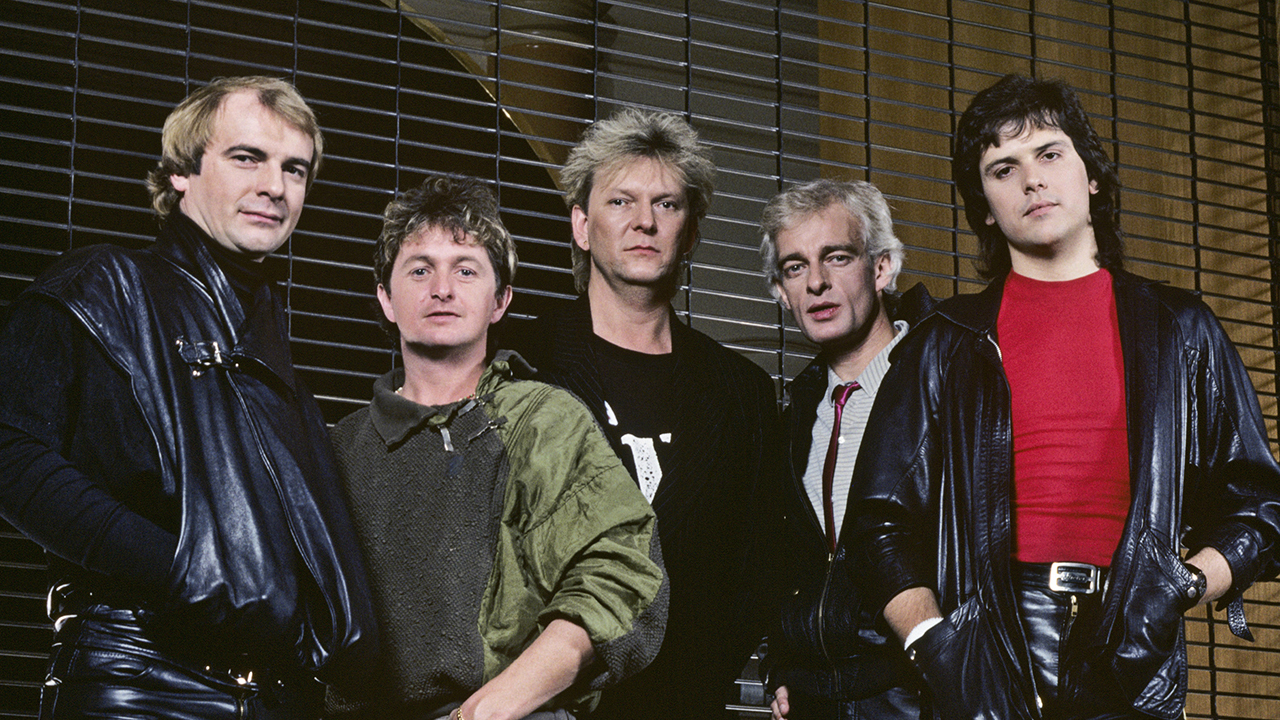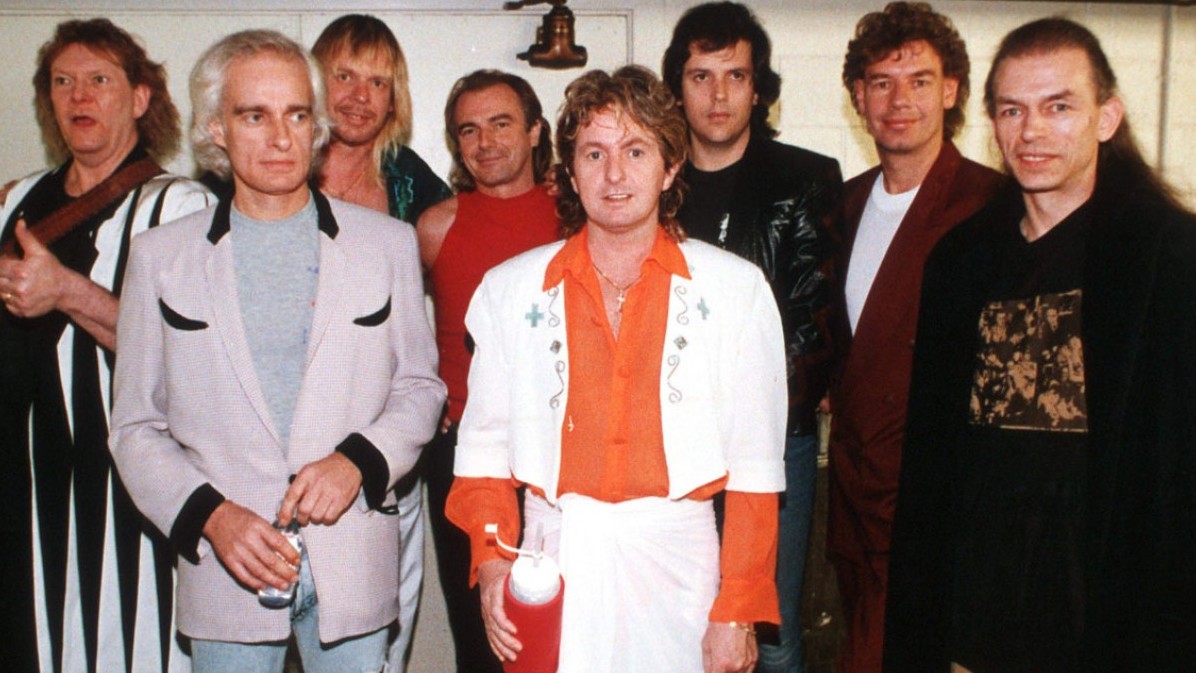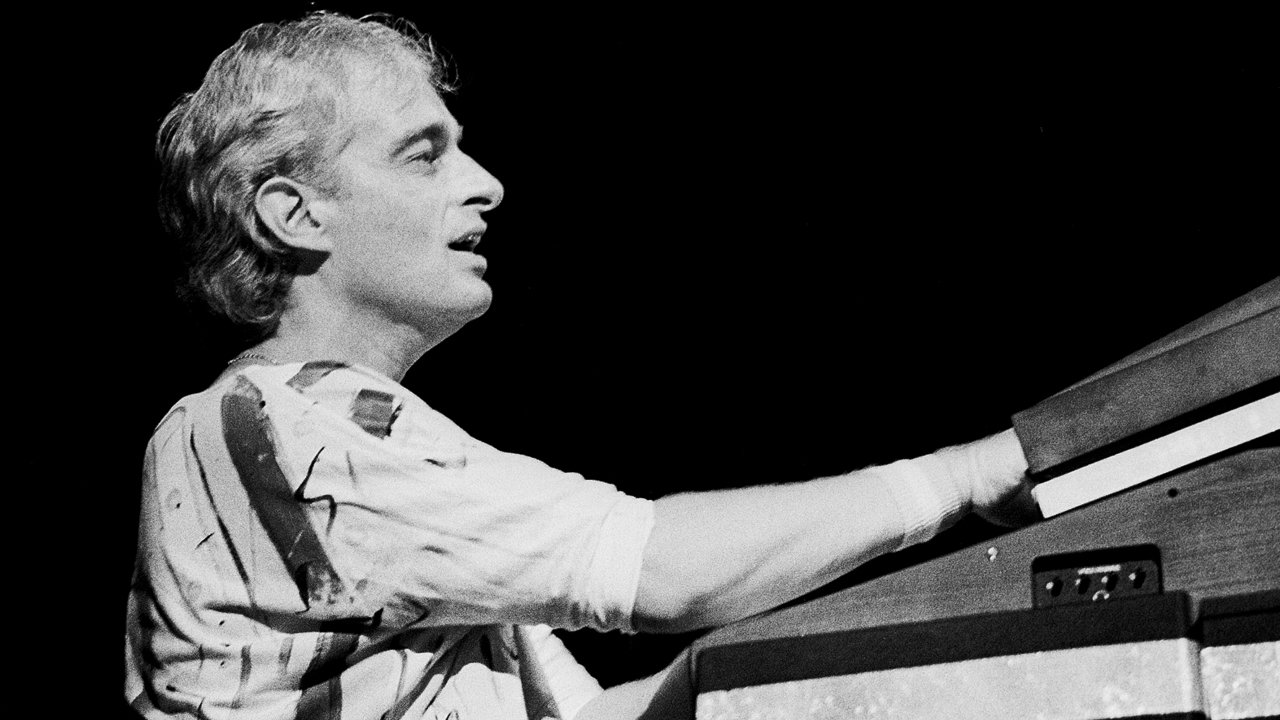We talk to Yes in the brand new issue of Prog Magazine, charting the amazing year the band had in 1971, releasing not only The Yes Album, but also Fragile, having a US hit with Roundabout, and becoming a major player in the burgeoning progressive rock movement.
Keyboard player Tony Kaye was an original member of the band who features on their first three albums, before being replaced by Rick Wakeman following his departure after The Yes Album.
Kaye would go on to feature in prog rock outfit Badger, tour with David Bowie, join melodic rockers Detective, before returning to the Yes fold for 1983's 90215. he also features on the Big Generator, Talk and Union albums. He is also a member of Circa with current Yes bass player Billy Sherwood and featured in the short-lived Yoso with former Toto singer Bobby Kimball.
Kaye appeared with Yes, with whom he was inducted into the Rock And Roll Hall of Fame in 2017, as a special guest on their recent 50th anniversary US tour.
You can get the new issue of Prog Magazine, which comes with three Roger Dean art prints and a 116-page Pink Floyd eBook, here.

Was it hard for you to see Yes after your departure?
No, not at all. After leaving Yes I had started Badger with David Foster and barely two or three weeks Yes came back from a big American tour and they wanted to use our equipment. It was fine. We did some gigs with them.
I had no animosity toward them or Rick. I had a lot of admiration for Rick actually as a player. I mean, he's obviously a great technician. We grew up sort of similar classical background. So there, there was nothing bad between us.
I went to see the band several times. I saw Topographic and a couple of tours in America. I love the 70s version of the band, I thought they were really great. And of course by the time the Union tour came around and I really didn't know Rick, I mean, I had hardly met him but we just got on great.
What was it like returning to the Yes family 13 years after you’d been asked to leave it?
I basically came back into the Yes fold and moved back to England in 1982, this was with Trevor Rabin and we had a very successful time through the 80s. The band was very together.
It sort of splintered with Jon doing his AWBH thing and the rest of Yes who by then all living on the West coast trying to think of what we were going to do. That's when the Union thing came about. I thought it was a great idea. A lot of people didn't, but I thought that it was a great idea and it turned out to be very successful. There were eight people playing Yes music and you know it was not always easy to cover Yes music as a five-piece or with four instrumentalists. But with eight people it was a lot easier and we had a great time.
Did you have any reservations about joining the 50th Anniversary shows in 2018?
Touring is kind of a young guys game and it's not always easy traveling and being on the road. I didn't really know whether my health was going to be affected by it, and you know I'm not 20 anymore. But it actually really worked out. it was great fun revisiting that era. We had such a good time every night because the audience, especially for that 50th anniversary, was so great.
Is being a member of Yes a blessing or a curse?
Playing with David Bowie, Badfinger, Detective, and Circa have all been great experiences for me but Yes has been a very important part of my life and history but it’s not the only thing I’ve done like some people in the band. Yeah, I’d say it's been a blessing.

Looking back on your time with Yes, would you change anything?
I wouldn't change a thing. The 50th anniversary was a great experience. I did think twice about it, cause I wasn't sure whether I really wanted to go on the road and, you know, do that thing. The band has gone through some craziness in the past and different people and, some people who were not that easy to work with. This current band, of Steve, Jon, Alan, Geoff, and Billy are just such great guys. We were friends and that's not always an easy thing to have.
That's why when people say it's not Yes without Jon Anderson and everything, you know, from a band's point of view, it doesn't really ring true because one of the most important things is being able to play together and be friends. That's what this band is and that's why this band will, in my opinion anyway, carry on into the future.
Did you attend the induction of Yes into the Rock & Roll Hall Of Fame in 2017?
No, I decided not to go. I was somewhat peeved that Peter Banks had been left out. I didn't think that was fair at all. I mean, it's supposed to be about the original band and they tried to incorporate everyone that had been in the band, and of course, by and large, the people that were inducted did have a big history with the band. So, I mean, I'm not going against that, but you know, Peter had been in the band at the beginning. So anyway, there was that and also the fact that there were literally two Yes bands that were going out, and I knew that it would be sort of a tense time, should we say. My wife had surprised me with a party in Los Angeles with all my friends. I couldn't have done that in New York with a bunch of guys yelling at each other.


